‘When the government made a political decision to close the coal plants, no money was made available to compensate the workers,’ said Patrick van Klink, representing the Federation of Dutch Trade Unions (FNV), the largest confederation in the country.
‘We want there to be a fund to compensate the workers for income loss or pension loss, and to help workers retrain for new jobs.’
Promo video made by the Federation of Dutch Trade Unions to promote Just Transition
Last fall, the new Dutch government coalition announced it would close down all five of the Netherland’s coal power plants by 2030, including three that opened as recently as 2015. The coal phaseout was a part of a plan to cut emissions by 49 per cent compared to 1990 levels by 2030, a target more ambitious than the one set by the EU (40 per cent).
The coalition agreement also mentions a carbon floor price of 18 euros in 2020, rising to 43 euros per tonne in 2030.
‘Most likely, the coal plants won’t reach 2030 due to this price.’
‘This will cause the share of coal in the Dutch power mix to significantly drop from 2020 onwards,’ says Willem Wiskerke from Greenpeace Netherlands. ‘Most likely, the coal plants won’t reach 2030 due to this price.’
According to the government, carbon capture and storage (CCS) will play a major role in reducing industrial emissions. Any money invested in CCS is expected to go towards reducing emissions produced by industry and not towards CCS at coal plants.
In 2017, a major CCS project at a the half a billion euro coal plant in the Rotterdam port (ROAD) was cancelled after two energy companies backing the project pulled out.
Investing in CCS applied to a coal plant made little sense in the context of the upcoming decision to phase out coal. While the Dutch government made the announcement at the end of last year, it had been expected since 2015 when a parliamentary resolution calling for a complete, nationwide coal phaseout was adopted.
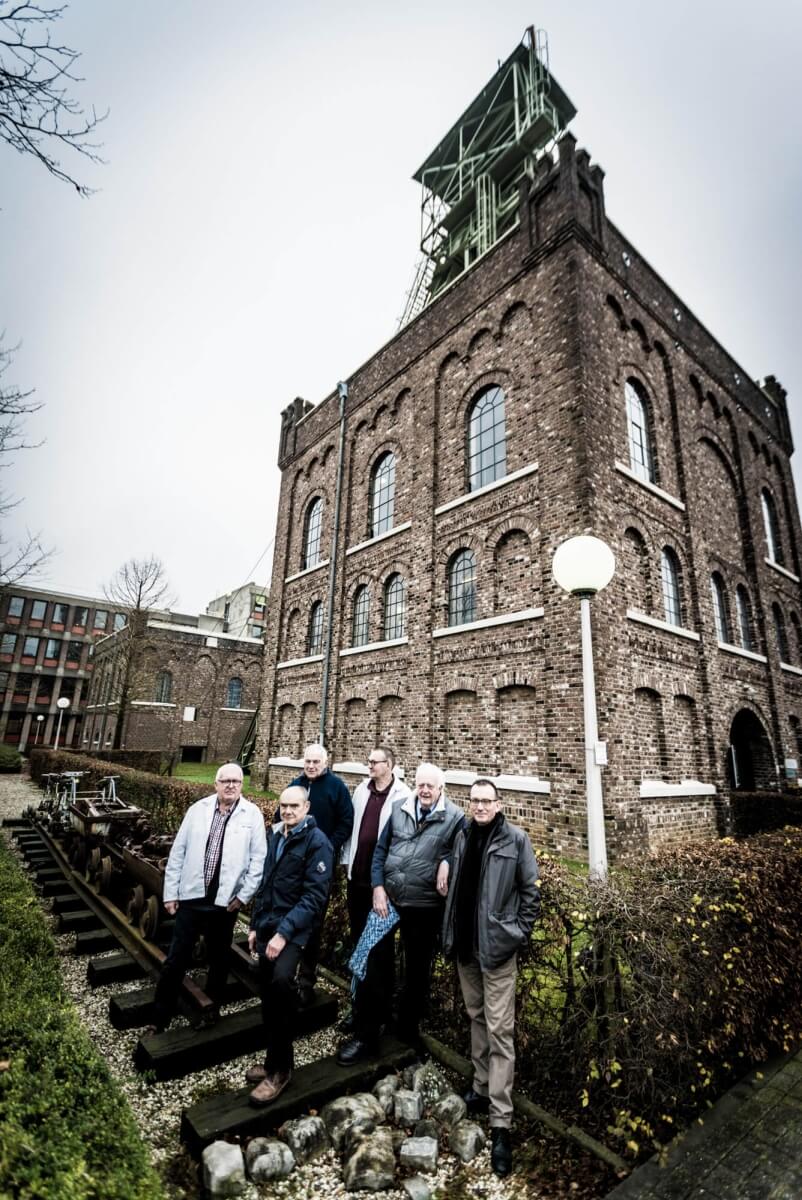
The unions’ struggle
In the Netherlands, major policy decisions are usually backed by a tripartite negotiation process involving government, businesses and unions (the so-called ‘poldermodel’). This is the case too with the government’s commitment to a cleaner economy.
In 2013, a broad coalition of social actors including the government, companies, unions and environmental groups negotiated an ‘Energy Agreement for Sustainable Growth’, which established targets in areas like energy savings, renewable energy production and the creation of new green jobs.
The Energy Agreement is valid until 2023, when a new deal is expected to replace the current one.
‘The changing of the economy came with the creation of new jobs’
‘We backed this process because we thought, simply, that it was necessary: there are no jobs on a dead planet,’ explained Patrick van Klink. ‘Additionally, the changing of the economy came with the creation of new jobs which were not unionised, and this was an opportunity for us. Many of the new jobs that were created were flexible, precarious; because we were involved in the process, we could make a fuss about this from the start.’
Van Klink said that his union, with the support of some major environmental groups, has three main goals in negotiating the upcoming Energy Agreement: compensation for workers in the coal sector that lose jobs, steady jobs in the new economy, and a fair distribution of the costs of clean energy (van Klink said his union opposes increasing electricity bills to finance industrial CCS because this would disproportionately affect the poor).
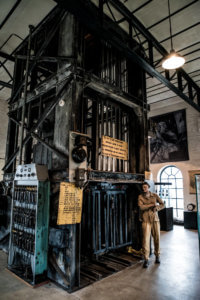
When the Netherlands shut down its coal mines in the 1960s and 1970s (all twelve located in the Limburg region in the southeast), the strength of the unions and the ‘poldermodel’ meant that the fate of the miners was critical to any discussion about the region’s future. At the time of closure, 55 000 people worked for the mines and another 20 000 in connected businesses.
According to Wim Dekkers from the Federation of Dutch Trade Unions, while some miners were anyway dissatisfied, important measures were taken to create options for them: the miners received compensation payment, new jobs were created in chemical and car plants (the chemical industry, where most of the workers went, is still alive today) and the government even relocated public institutions to Limburg to create jobs.
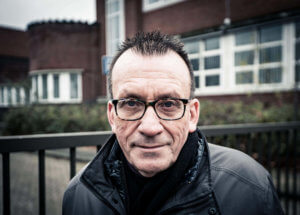
The billions of euros necessary for the transition were provided from European and state funds.
‘The plan made at the time fits into three big books, it was as detailed as that,’ Dekkers explains. ‘What’s important is to reevaluate the plans every five to ten years because things change, especially in the international economy. You always have to have a plan B and a plan C ready.’
Nowadays, about 2 500 jobs are threatened by the coal phaseout, in the coal plants, coal terminals at the Dutch ports and in transport sector. They are few in comparison to the number of mining jobs lost decades ago, but the political context has changed so much that the unions are worried whether they can get a fair deal today.
‘The utilities are unlikely to give workers the compensation they expect because they also have an obligation to minimise losses for their shareholders,’ says Patrick van Klink. ‘Companies have also not been investing in any training programmes in the last years, given the austerity climate we’ve been in.’
‘Greenpeace understands that the energy transition has to be fair.’
‘The Netherlands is a liberal country nowadays and the idea to force an industry to shut down for the public good is shocking, let alone to compensate the people who work there,’ says Willem Wiskerke from Greenpeace Netherlands, which supports the coal workers’ efforts to receive compensation.
‘We are glad that FNV takes responsibility for the climate problem and accepts the need to end coal,’ added Wiskerke. ‘Greenpeace understands that the energy transition has to be fair. That is why it is so important that environmental groups and labour unions work together since their goal is the same: social justice.’
The future of coal imports
When it comes to the impact on emissions, the Netherlands’ coal plants are important, but so are its ports: about half of Germany’s coal imports arrive via Rotterdam, which hosts the largest coal terminal in Western Europe.
The Amsterdam port has already announced a phaseout of coal imports by 2030, but the real stake is Rotterdam.
The EMO corporation, which operates the coal terminal in Rotterdam, used to have the right to automatically renew its 25-year lease, but last year the Rotterdam city council opposed another renewal on the grounds that it would undermine the Netherlands’ commitment to the Paris Agreement.
According to van Klink, the workers in the terminal were angered by the city council’s decision but eventually agreed to a meeting with council representatives.
‘We need to show them that this is not a one-way decision, that the interests of the workers will be taken into account and that compensations will be paid,’ said van Klink.
It will be hard, however, to persuade the port workers if authorities and utilities are seen as reluctant to give decent compensations or retrain coal workers and help them find new jobs.
A miner’s life
Wim Schoenmaekers began working at the Wilhelmina mine in Kerkrade, Limburg region, at the age of 16. At 17, he spent eight hours a day, five days a week, underground. He worked underground for 15 years, first in Wilhelmina and later in the Emma mine in Heerlen. He left the mine in 1968, one year before it closed.
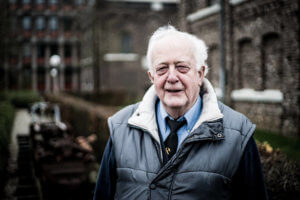
Schoenmaekers remembers that the work was very hard, especially because temperatures ranged between 28 and 32 degrees depending on the depth. He is convinced much fewer people would have chosen to work undergound had it not been for the state and church, which he says conspired to keep people in the region impoverished and therefore dependent on mining jobs.
‘I’m proud to have been a miner’
‘I’m proud to have been a miner’, says Schoenmaekers, ‘although today I wouldn’t do the same.’
When the mines closed, workers received compensation (60 per cent of their former monthly pay) for the first year. At the time, they were offered jobs in the newly opened chemical or car plants, though the pay was about half of that in the mines. The lucky few like Schoenmaekers who were educated could even hope for a government office job.
Schoenmaekers says his family became poor after he stopped working in the mine, so much so that his wife had to sew clothes for the kids at home. But he considers himself lucky: his office job actually involved a degree of variation, unlike the conveyor belt jobs in the factories that drove some of the former miners crazy.
‘In the mines you were free, but you go to the conveyor belt, and you just get sick,’ he said.
76 years old today, Schoenmaekers remains strong and active: he works as a guide at the mining museum in Heerlen, built on the site of the former mine where he used to work. Some of his colleagues from those times are also employed there.
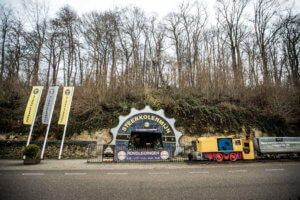
Like in the old days, Schoenmaekers prays to Saint Barbara, the patron saint of miners, whom he thinks is responsible for saving his life in many tricky underground situations. And he keeps an eye on what goes on in the mining sector around the world today.
He says the 2014 Soma mining tragedy in Turkey, when 301 people were killed, broke his heart.
Life in the underground, unknown to others, unites us
‘We, miners, know no borders. Life in the underground, unknown to others, unites us,’ Schoenmaekers says.
Wim Dekkers, the former miner that today works for the Federation of Dutch Trade Unions as the chairman for health and safety, does safety trainings for miners around the world. He travels to Colombia, from where the Netherlands imports most of its coal since closing its own mines, and to Belarus, Turkey and other places.
‘Some of the conditions I saw down in the mines in these countries today reminds me of the conditions we used to work in during the 1960s, and sometimes they can be worse.’
Dekkers tells audiences in Colombia, Belarus and elsewhere they should start thinking about life after mining and that Limburg’s transition away from coal might serve as an example.
‘If the EU stops using coal, countries like Colombia will be severely impacted. They have to start planning.’
![Political Critique [DISCONTINUED]](https://politicalcritique.org/wp-content/uploads/2015/09/Political-Critique-LOGO.png)
![Political Critique [DISCONTINUED]](https://politicalcritique.org/wp-content/uploads/2015/09/Political-Critique-LOGO-2.png)